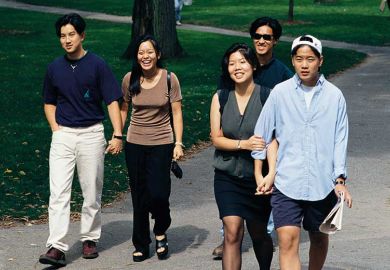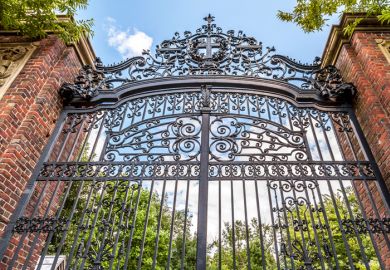The US college admissions scandal has raised hope for defenders of affirmative action that the Harvard University lawsuit might now illuminate rather than obscure the disadvantages that hamper low-income and minority students.
In the lawsuit, Harvard stands accused of crafting racially diverse classrooms by unfairly boosting black applicants. The university bribery scandal that has hit the US this month, however, demonstrated the still-formidable power of white and wealthy applicants to gain places at elite colleges.
The scandal may come too late to affect a ruling at the trial court level on Harvard’s right to its affirmative action practices, some Harvard defenders said. But the scandal may help to blunt the possibility of longer-term legal and political harm to affirmative action nationwide, they said.
“There has been a giant change in the way that people are looking at affirmative action in light of [the bribery] scandal,” said Rachel Kleinman, a lawyer for the National Association for the Advancement of Colored People.
The result, said another lawyer, may be similar to the way the surging Black Lives Matter movement of 2016 influenced the University of Texas’ win in its affirmative action case. The admissions scandal is sure to have “some indirect influence on the way that judges view this issue”, said Nicole Gon Ochi of Asian Americans Advancing Justice.
Harvard stands accused in its case of unfairly rejecting an Asian American student as part of its affirmative action policy. The lawsuit was initiated by a conservative activist, Edward Blum, who has failed in past attempts to portray white students as victims of affirmative action.
With his plaintiff in the Harvard case, Mr Blum has argued that Asian Americans are the true disadvantaged racial class, with fewer students at the Ivy League institution than their high school achievements appear to warrant. Harvard and its defenders have presented evidence of the overriding value of diversity.
The bribery admissions scandal, meanwhile, involves actions by the families of at least 33 students to pay bribes to win their children spots in elite institutions that include Yale, Stanford and Georgetown universities, the University of California, Los Angeles, and the University of Southern California. Harvard is not among them.
The scandal erupted when the FBI announced charges against 50 people for involvement in what it called an eight-year run of bribery organised by a private college admissions strategist who arranged falsified sporting and academic credentials on behalf of the student applicants.
The participating parents, including Hollywood stars and corporate executives, paid as much as $6.5 million (£4.9 million) to help their children enter particular institutions, the FBI said.
Sports coaches at several of the colleges were accused by the FBI of making blatantly false claims of athletic ability to help the students qualify for admission. The colleges quickly suspended or fired the accused coaches, while promising case-by-case reviews of the students, some of whom were unaware of the deception.
The salacious headlines from the scandal, said Daniel Hirschman, an assistant professor of sociology at Brown University who studies racial achievement gaps, risked distracting Americans from fully recognising and addressing the many wealth-based manipulations of university admissions.
“Hopefully the opposite will occur,” Dr Hirschman said, “and colleges will revisit their existing systems of legacy and athletic preferences and ask how these policies work against their strong commitments to racial and socio-economic diversity.”
Register to continue
Why register?
- Registration is free and only takes a moment
- Once registered, you can read 3 articles a month
- Sign up for our newsletter
Subscribe
Or subscribe for unlimited access to:
- Unlimited access to news, views, insights & reviews
- Digital editions
- Digital access to THE’s university and college rankings analysis
Already registered or a current subscriber?








